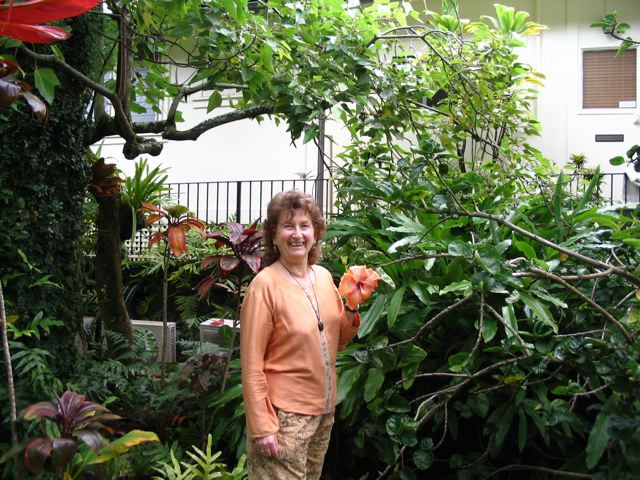By Sheila Canal

Breathing in, I am aware of feeling irritation.
Breathing out, I am aware I am being manipulated.
Breathing in, I know I am working with someone on meth.
Breathing out, I understand what to do and what not to do.
I work at the State of Oregon’s Department of Human Services, Self Sufficiency.
By Sheila Canal

Breathing in, I am aware of feeling irritation.
Breathing out, I am aware I am being manipulated.
Breathing in, I know I am working with someone on meth.
Breathing out, I understand what to do and what not to do.
I work at the State of Oregon’s Department of Human Services, Self Sufficiency. We provide Food Stamps, medical benefits, and Temporary Assistance to Needy Families, historically known as welfare. We see many people affected by drug addiction, physical and mental disabilities, domestic violence, and homelessness, and some who are recently unemployed due to the recession.
Working with methamphetamine (meth) users consistently produces a feeling of irritation in me. When I notice this feeling, I remember that meth users are controlled by their drug, and I relax my irritation. Meth attacks the nervous system and brain. Addicts are not free, and they often behave in ways we characterize as criminal in order to maintain their habit. Awareness of the causes of my irritation enables me to sink into a well of compassion, and allows me to work with these users effectively, with healthy boundaries. Their presence in my office, rather than in prison, shows some hope for these individuals and their families.
My fellow workers are truly my Sangha. We see each other daily, more than we see our children. We rub up against each other as we interpret state policy and help people find the means to relieve their hunger and become self-sufficient. In the process, we build teamwork, communicate honestly, and work through conflicts. We are from diverse backgrounds and spiritual orientations, from atheism to evangelical Christianity. We take time during staff meetings to share who we are in the moment. We are a happy community, and from this place, we are able to meet our clients with a high level of service.
Mindfulness supports my work with clients, helping me to focus on their strengths rather than their needs or barriers. This strength-based approach helps each person see the positive aspects of their lives. We talk about their suffering in terms of concerns and motivators, and we base case management plans on their strengths. Because strengths are at the forefront, compassion overcomes pity and we become equals; each person, especially the client, contributes to action steps that will generate self-sufficiency.
A memorable example occurred one afternoon when a coworker asked me to see a particularly angry client. A homeless Vietnam veteran, he had only a bike, a dog, and a camping spot in the mountains. Extremely angry that he hadn’t received his Food Stamps, he had our totally competent, unflappable receptionist absolutely unglued. David, the receptionist, was so upset by the vet’s insults about his Peruvian accent that he made a mistake, further escalating the situation.
I was asked to intervene. Incidents involving prejudice frequently water my seeds of anger. This time, I had to embrace my anger with mindfulness. Sensing the staff ’s wish for a decrease in verbal abuse, I knew I had to avoid contributing to it. I agreed to see our friend. After taking a little time to breathe, I calmly and respectfully invited the veteran into my cubicle to sit. He told me exactly how the system was screwing with him. Without interrupting, using eye contact and nonverbal cues, I listened to him with my full attention. I acknowledged his anguish and injustice. He became calm, and then spoke of his life and needs. Together we addressed what was preventing him from getting his stamps, and he left calm and satisfied, with access to food. He remains memorable to me because my Buddha nature spoke to his Buddha nature, and we saw each other.
When mindfulness is strong, touching suffering each day by serving the poor and the homeless has its own rewards. Along with helping the hungry get food, I can relieve the anxiety of parents by helping them get health insurance for their children, child care subsidies, and training. The Mindfulness Trainings support my work and keep me whole and grounded. Being present in the moment—walking mindfully through the office, stopping and breathing when the telephone rings, breathing mindfully as often as possible—alleviates frustration and overwhelm, and restores me. I can bring my whole presence to my work and make my work my practice.

Sheila Canal, True Spiritual Understanding, met Thay and the Sangha at the Retreat for Environmentalists in 1991. She is a member of the Many Rivers OI Stewardship Council in southern Oregon.

